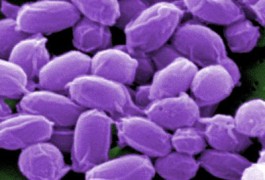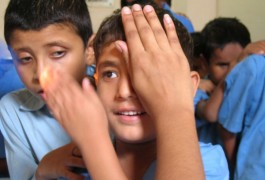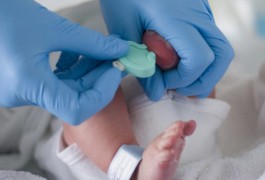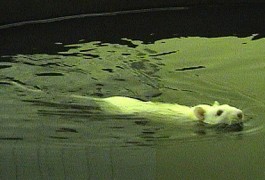Cognition and behavior: Probiotics alleviate anxiety in mice
Probiotic bacteria alleviate stress in healthy mice and modify the expression of receptors for a chemical messenger that inhibits signaling in the brain.
Efforts to ease the symptoms of autism are beginning to ramp up, with promising candidates in various stages of testing.

Probiotic bacteria alleviate stress in healthy mice and modify the expression of receptors for a chemical messenger that inhibits signaling in the brain.

An adventure story about a boy with autism is making an appearance in a popular comic book.

Individuals with fragile X syndrome make slightly more eye contact in stressful social situations after taking oxytocin compared with placebo.

Impairments in vision, even if they don’t cause autism, are likely to be manifestations of underlying neural abnormalities, says Pawan Sinha, professor of vision and founder of the humanitarian organization Project Prakash.
A compound that shows promise as a treatment for fragile X syndrome alleviates repetitive behaviors in mice, but unexpectedly makes them less social.
Zebrafish share genes and pathways with humans, making them a useful tool to identify the genes that malfunction in autism, says expert Hazel Sive.

Screening for metabolic disorders in children with autism is not cost-effective, according to a study published 7 July in PLoS One. The researchers argue instead for careful individual clinical analysis.

New studies of restricted and repetitive behaviors link autism to other disorders and may lead to more effective treatments.

MeCP2, the protein missing in people with Rett syndrome, enhances learning and memory by binding to key genes and either activating or inhibiting their expression, according to a study published 17 July in Nature Neuroscience. Adding a phosphate to the protein in response to neuronal activity releases MeCP2 from these genes, the study found.

Including more females in autism research studies will aid the search for genetic and environmental susceptibility factors for the disorder, says genetic psychiatrist Lauren Weiss.